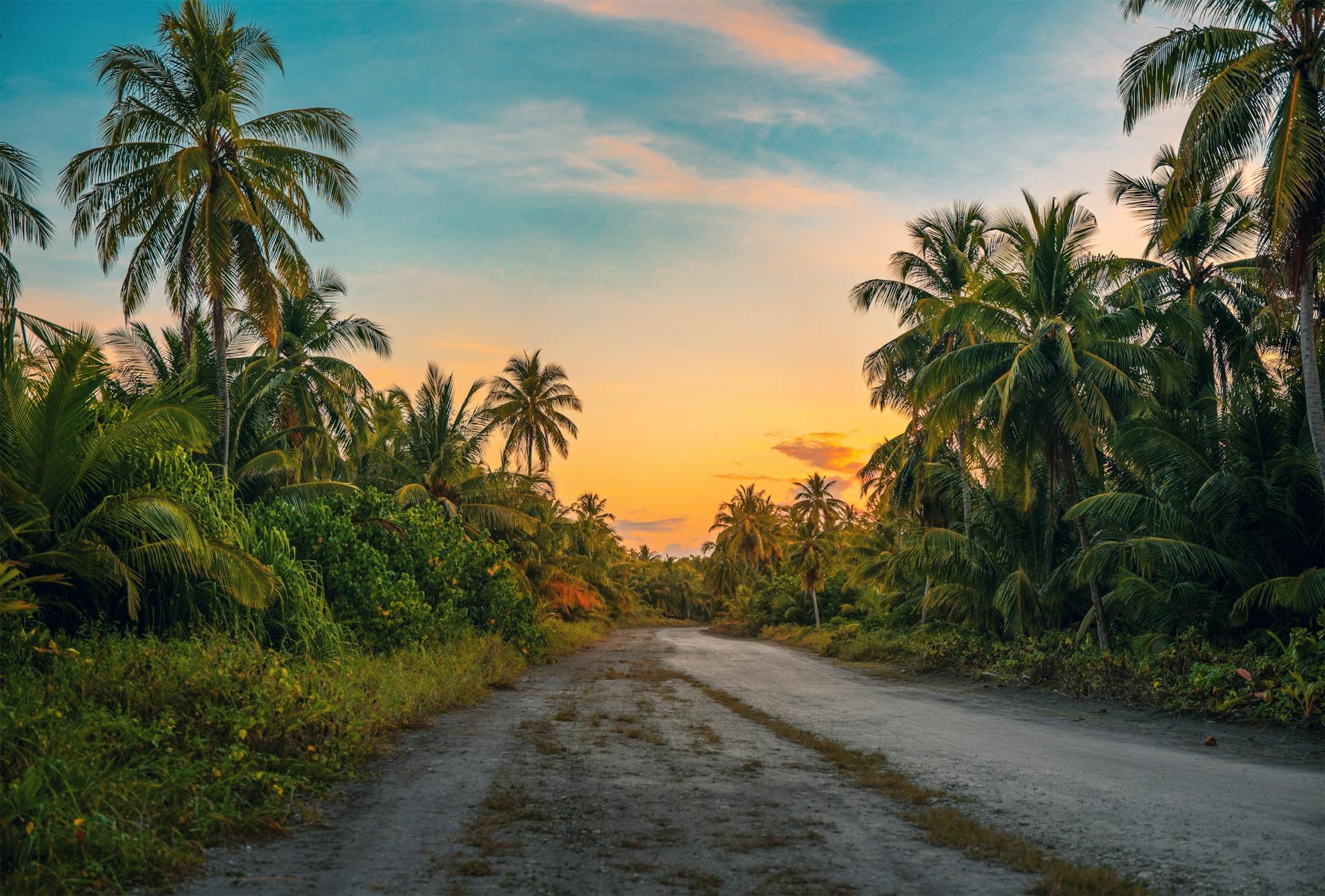A tropical getaway is the perfect escape from cold winter months, but before you pack your bags for sunny beaches, exotic landscapes, and vibrant cultures, proper preparation is key to ensuring a safe and enjoyable trip.
Tropical destinations come with unique health risks, including food- and waterborne illnesses, mosquito-borne diseases, and sun-related health concerns. Taking the right precautions will help you stay healthy while making the most of your trip.
At East Guelph Medical Centre (EGMC) Travel Clinic, we provide pre-travel consultations, personalized health advice, and vaccinations to help you prepare for your trip with confidence.
1. Sun & Heat Protection: Staying Safe in the Tropics
Hot and humid climates can be tough on the body, leading to dehydration, sunburn, and heat exhaustion.
Protect Your Skin
Use broad-spectrum sunscreen (SPF 30+ or higher) and reapply every two hours.
Wear lightweight, breathable clothing, wide-brimmed hats, and UV-protective sunglasses.
Avoid direct sun exposure between 11 AM and 3 PM when the UV index is strongest.
Stay Hydrated
Drink plenty of bottled or purified water to prevent dehydration.
Avoid excessive alcohol and caffeine, which can contribute to dehydration.
Carry electrolyte packets for rehydration in extreme heat.
2. Food & Water Safety: Avoiding Traveler’s Diarrhea
Food- and waterborne illnesses are among the most common health risks for tropical travelers. Traveler’s diarrhea, food poisoning, and parasitic infections can quickly ruin a vacation.
Drinking Water Precautions
Avoid tap water—stick to bottled, boiled, or filtered water only.
Skip ice cubes in drinks if made with unfiltered water.
Brush your teeth with bottled water in high-risk areas.
Food Safety Guidelines
Avoid street food, raw seafood, and unwashed fruits/vegetables.
Be cautious of buffet-style meals, which can have bacteria growth in warm temperatures.
Eat hot, freshly cooked meals from reputable restaurants.
Peel fruits and vegetables yourself when possible.
3. Insect Protection: Preventing Mosquito-Borne Illnesses
Many tropical destinations have mosquito-borne diseases, including malaria, dengue fever, Zika virus, and chikungunya. While some of these diseases have no vaccines, preventing mosquito bites is the best protection.
How to Protect Yourself from Mosquitoes
Use insect repellent with DEET, Picaridin, or Oil of Lemon Eucalyptus.
Wear long sleeves, pants, and closed-toe shoes in high-risk areas.
Sleep under a mosquito net if staying in remote accommodations.
Use permethrin-treated clothing and bed nets for added protection.
Stay in air-conditioned rooms or use window screens to keep mosquitoes out.
If traveling to a malaria-prone region, consult your doctor about taking anti-malarial medication before and during your trip.
4. Travel Insurance & Medical Care Access
Accidents and illnesses can happen anywhere. Being prepared for medical emergencies is just as important as packing your passport.
Before You Travel:
Purchase travel health insurance that covers medical emergencies, hospital stays, and evacuation.
Research local medical facilities and pharmacies at your destination.
Carry a summary of your medical history and prescription medications.
Bring a small first aid kit with bandages, antiseptics, pain relievers, and motion sickness tablets.
When to Seek Medical Help While Traveling:
Severe dehydration or heat exhaustion (dizziness, confusion, fainting).
Persistent vomiting or diarrhea leading to dehydration.
Uncontrolled blood sugar or blood pressure spikes.
Chest pain, difficulty breathing, or severe allergic reactions.
5. Packing a Travel Health Kit
A well-stocked travel health kit ensures you’re prepared for minor health concerns without scrambling for supplies abroad.
Essentials to Pack:
Pain relievers (acetaminophen or ibuprofen).
Anti-nausea/motion sickness medication.
Traveler’s diarrhea treatment (Imodium, oral rehydration salts).
Electrolyte packets for hydration.
Antiseptic wipes and bandages for minor injuries.
Allergy medication (antihistamines).
Prescription medications in original packaging.
Hand sanitizer and disinfectant wipes.
6. Recommended Travel Vaccinations
While prevention strategies like insect repellents and safe food practices are important, some tropical diseases require vaccinations to protect against infection.
Routine & Travel-Specific Vaccinations
Hepatitis A & B – Protects against liver infections spread through contaminated food, water, or bodily fluids.
Typhoid Fever – Recommended for travelers visiting regions with poor sanitation.
Yellow Fever – Required for travel to parts of South America and Africa (check entry requirements).
Rabies Vaccine – Advised if spending time in remote areas, hiking, or working with animals.
Cholera Vaccine – Recommended for high-risk areas with food and water contamination.
Flu & COVID-19 Vaccinations – Protect against respiratory illnesses, which can spread easily in crowded travel settings.
Some countries require proof of vaccination for entry. Check destination-specific vaccine requirements before you travel.
7. Booking a Pre-Travel Consultation at EGMC Travel Clinic
At EGMC Travel Clinic, we provide:
Pre-travel health consultations tailored to your destination.
Medication travel advice for common illnesses.
Vaccinations and preventative health measures for safe travel.
Personalized travel health recommendations based on your itinerary.
Visit Us Before Your Trip
📍 Visit Us: East Guelph Medical Centre
📞 Call Us: +1(519)7630444
📧 Email: [email protected]
🌐 Website: www.eastguelph.clinic/travel-clinic
Your health should never take a vacation—plan ahead and travel safely.
Hashtags: #SafeTravel #TravelHealth #TropicalGetaway #EGMCTravelClinic #StayHealthyAbroad #PreventativeCare
